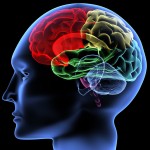Neurobiology of PTSD
Recently, I read “Neurobiology of PTSD” from Psychiatric Times (March 1, 2008) by John Medina, PhD. Below is a review (of sorts) of this article:
The search for a biological basis of Post-Traumatic Stress Disorder (PTSD), the study for the root cause is still relatively in its infancy. Psychologists are looking at the question of Nature vs. Nurture for a potential source.
There have been studies regarding whether PTSD can be explained by pre-existing conditions, thereby making it an issue of Nature (genetics) using monozygotic twins. Both showed an “alteration in hippocampal volume and morphology”. Though only one was exposed to “intensely stressful events (combat)”. Was this a pre-existing condition (nature) or a physiological change due to the stressor (nurture)?
This line of inquiry led researchers to look beyond the average member of the group and compared to the population distributions. Instead they began to focus on those animals that were at the opposite ends of the population spectrum. They began to study those who were appearing to recover much more quickly than the population from ‘fear extinction experiments’ and compared them to those at the opposite end of the distributions, the overly-reactive population. In doing so, scientists were able to identify two phenotypes within the overly-reactive population. These phenotypes are currently being researched in animals.
Some researchers are focusing on “certain regions of the mammalian genome [consisting] of short, repeated, noncoding sequences called VNTR’s (Variable Number Terminal Repeat), attempting to identify whether these variations could hold the key to how PTSD could be inherited through chromosomal sequences. One study found a VNTR variant in patients who experienced PTSD. Other studies have looked for associations between gene mutations in the glucocorticoid receptor and PTSD, others have focused serotonin receptors.
There are also arguments about how much ‘nurture’ plays a role in the development of PTSD after a traumatic event. There are questions of whether the physiological changes that have been demonstrated with PTSD are epigenetic or hereditary. Are they a physiological reaction to trauma or a pre-existing genetic mutation that predisposes a person to develop PTSD? Epigenetic studies have explored how much nuture effects development of the ability to regulate stress. Researchers have shown that environmental influences can cause “permanent alterations in hippocampal glucocorticoid receptor expression and subsequent hypothalamic-pituitary-adrenal axis”. This issue is currently the source of intensive research.
Not all studies are in agreement, however. There are theories of “methylation” and its molecular effects on genes. Hippocampal volume has also been studies; however, it is known to be able to change “as a result of environmental exposure, duration of certain illness, and even the age of the subject:. Also, it has been shown that hippocampal volume changes are not consistently shown in all age groups. While it can be present in younger patients, it is not generally associated with older patients.
Is PTSD genetic or environmental? Could it be both? The studies, while in their infancy, don’t seem to universally come to a singular answer. How do twins both show physiological changes with PTSD, though only one was exposed to trauma? That would be ‘nature’. Yet, how is it that who people can experience the same trauma but only one goes on to develop PTSD? From the things I have read, I am beginning to believe it is both. There has to be some genetic element to cause the physiological changes that have been documented to occur with PTSD. Yet, you cannot discount the influence of ‘nature’. Individuals who experience multiple traumas throughout their lives are more likely to develop PTSD than those whose lives were sheltered from trauma. Having personally experienced multiple traumas, I developed PTSD. Others who deploed with me, who experienced the same elements of combat but did not have the previous lifetime traumas, did not develop PTSD. Yet, for how little I experienced in compareson to other combat veteran, how did I develop PTSD, when others who experienced much worse and emerged apparently unscathed?
Memory Issues Related to PTSD
 There have been many studies related to memory issues related to Post Traumatic Stress Disorder. This particular study, a literature review by Kirstin W. Samuelson entitled: “Post-traumatic stress disorder and declarative memory functioning: a review” looks at the association between “everyday memory problems with emotionally neutral material”.
There have been many studies related to memory issues related to Post Traumatic Stress Disorder. This particular study, a literature review by Kirstin W. Samuelson entitled: “Post-traumatic stress disorder and declarative memory functioning: a review” looks at the association between “everyday memory problems with emotionally neutral material”.
Studies have shown that many PTSD patients complain of memory problems, aside from those symptoms that are part of the diagnostic criteria (intrusive thoughts, difficulty remembering parts of the trauma, etc.). This study focuses on declarative memory – that is memories that can be consciously recalled, like facts and knowledge. This type of memory can be broken down into two aspects: semantic memory which stores factual information and episodic memory which includes specific personal experiences.
The author notes “It should be emphasized that overall, decrements in memory performance due to PTSD are subtle, […] still, the findings are clinically meaningful when they represent a change in functioning before and after trauma”. She goes on to say that “the pattern of memory deficits reveal that PTSD most significantly impacts the initial acquisition and learning phases of memory, as opposed to the retention phase”.
In plain English this is a great big “duh!” to those of us with PTSD. We deal with this every day. We forget the simple things, we give up on school because learning seems so much harder than it used to be before…before our world changed. Things that once seemed a piece of cake are now complicated and hard to remember.




You must be logged in to post a comment.